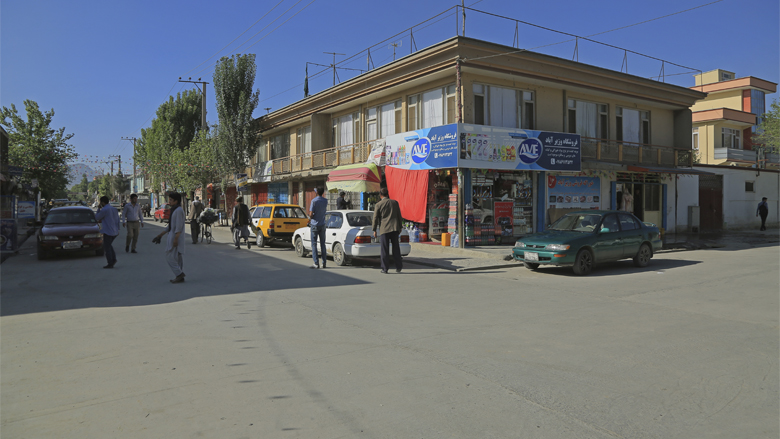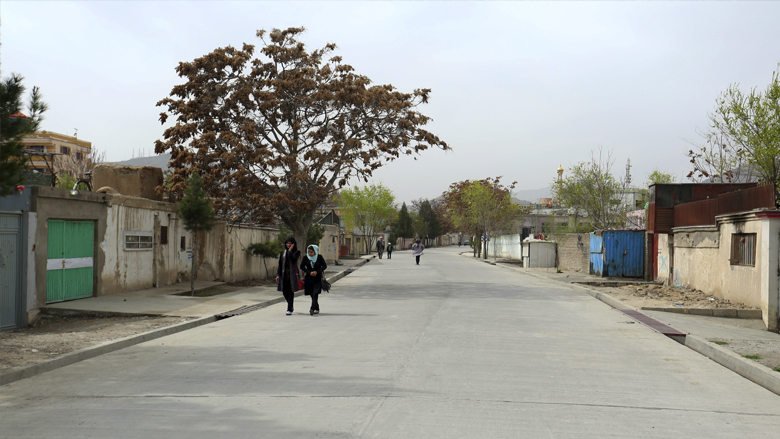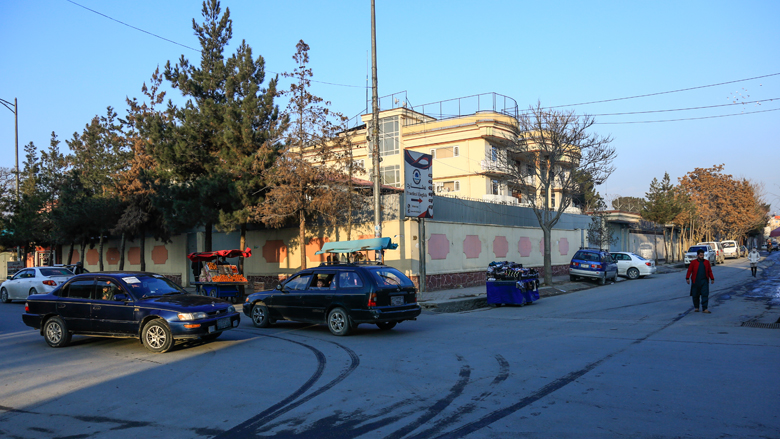KABUL CITY – Nematullah makes his way down a recently paved street in Qala-e-Fathullah neighborhood in Kabul city’s district 10. He is heading home after a short trip to buy fresh bread. It’s an enjoyable stroll today, but Nematullah says this was not always the case. In the past, street conditions sometimes kept him from reaching the main road – even though it is just 500 meters away.
“When my family first moved here four years ago, the condition of the street was awful,” he says. “Because of flooding, mud, and litter, the road was impassable some of the time and unpleasant to pass all the time. The smell was unbearable. It was very inconvenient to get anywhere, especially for the children to get to school.”
Now, Nematullah is able to come and go as he pleases. Kabul Municipality paved the neighborhood street in 2017 through the Kabul Municipal Development Program (KMDP).
Altogether the municipality has paved 38 streets, totaling over 9 kilometers (km) of roadway, in the Qala-e-Fathullah and Taimani neighborhoods.
Housewife Freshta, says, “!”




